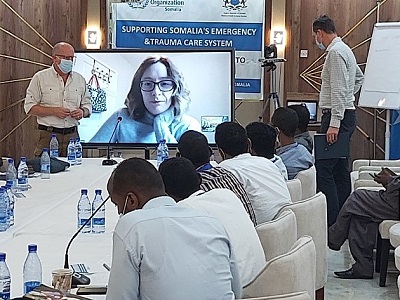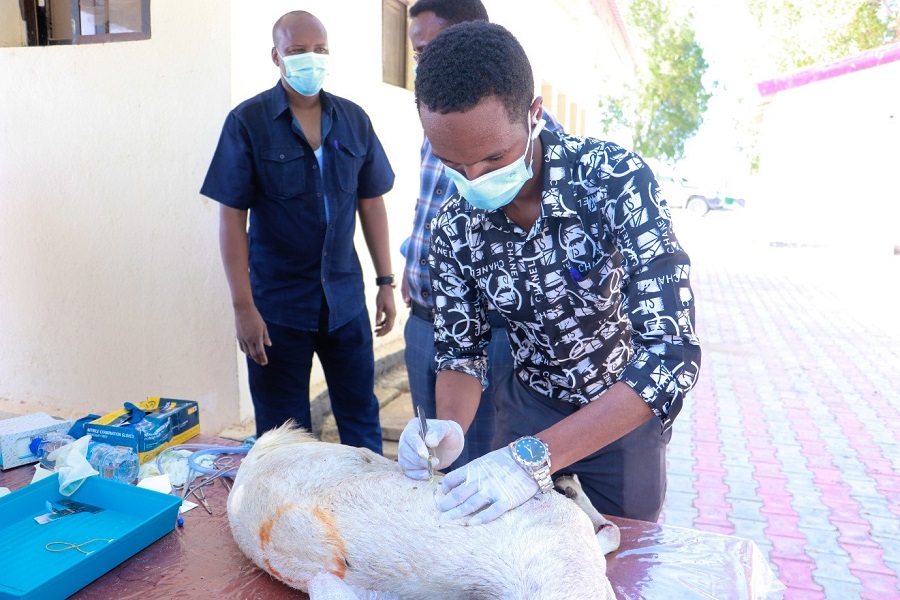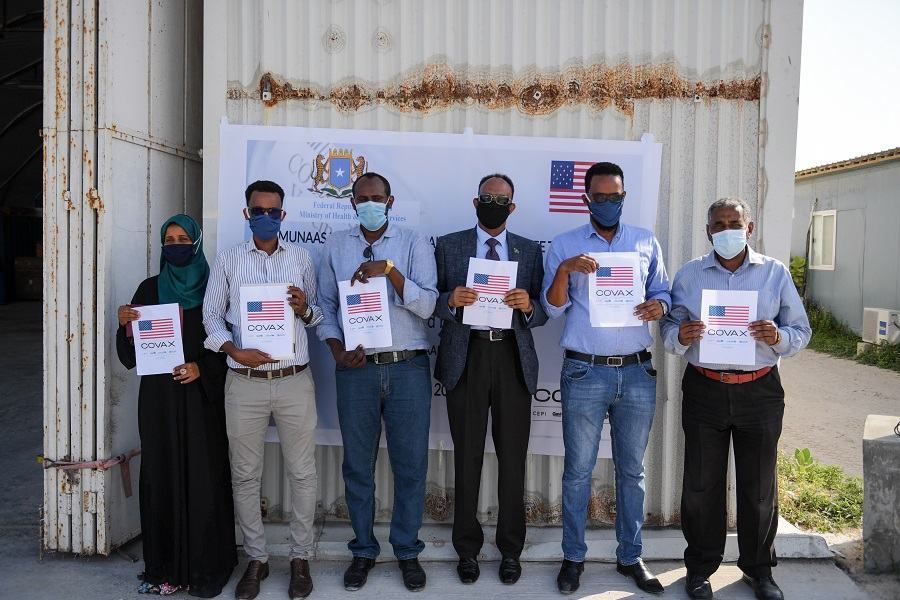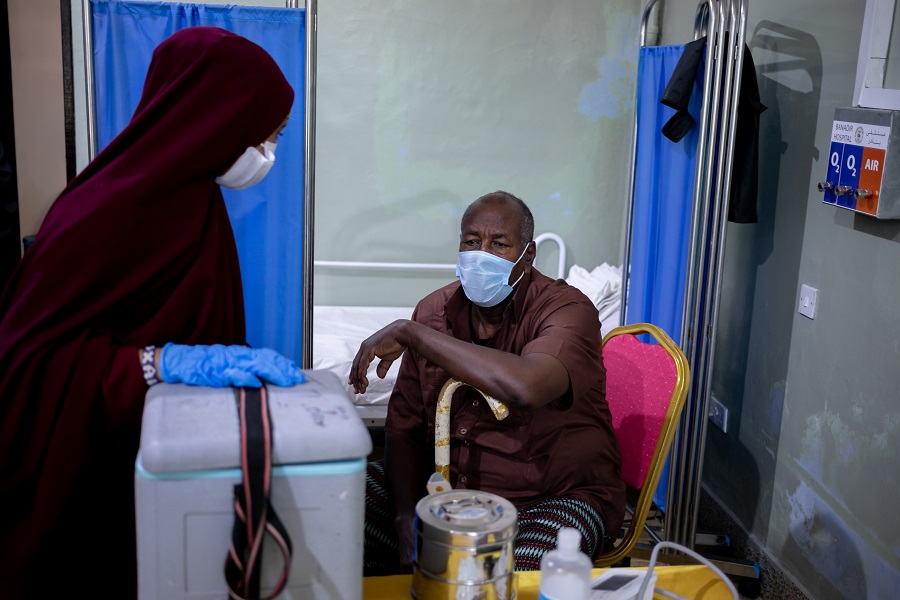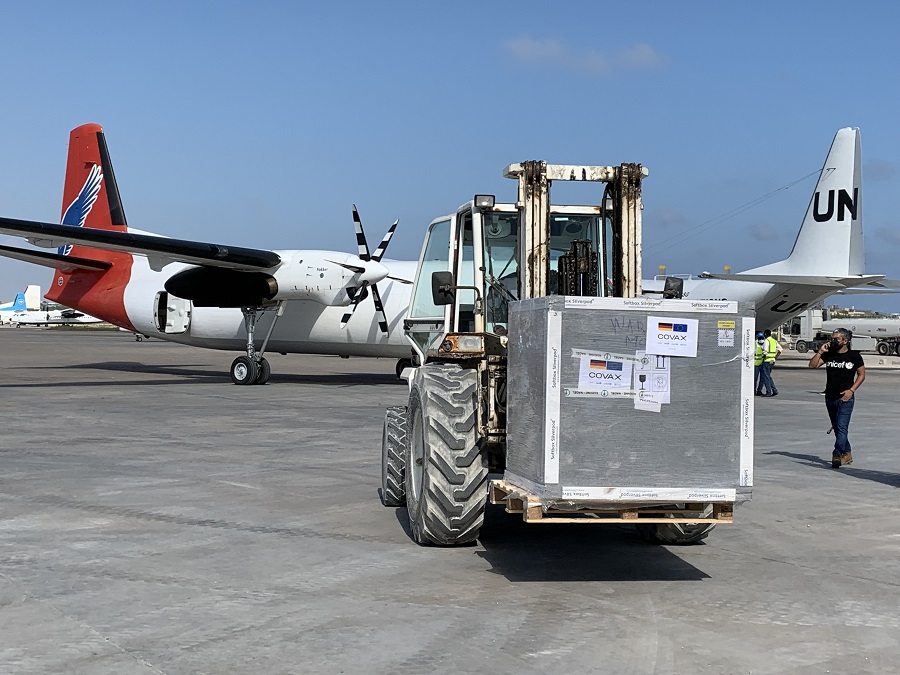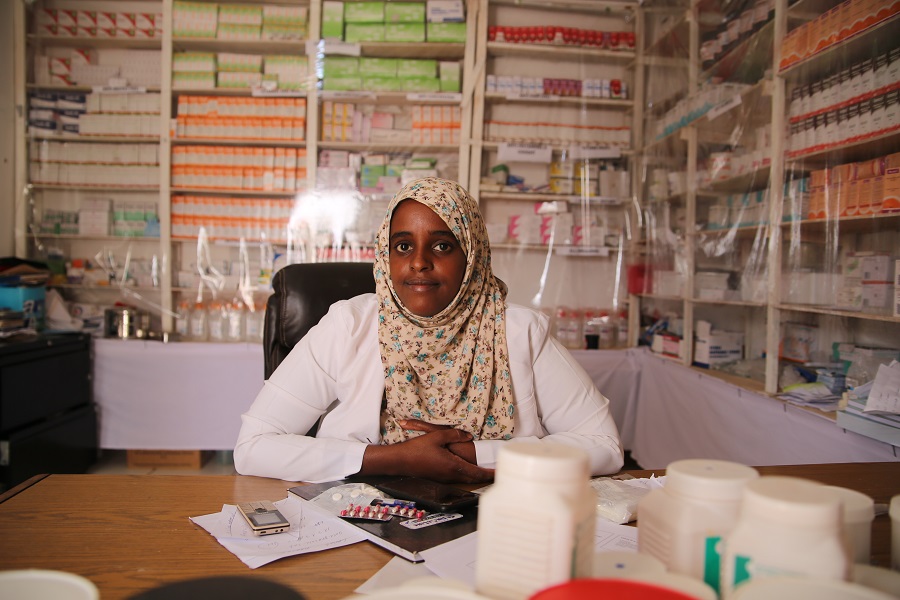 Credits: WHO
Credits: WHO
17 November 2021 – World Antimicrobial Awareness Week, commemorated from 18 to 24 November every year, aims to draw attention to the crucial issue of the proper use of antimicrobials, such as antibiotics, antivirals, antifungals and antiparasitics.
This year, the theme for the campaign is to ‘Spread Awareness, Stop Resistance’. The theme calls on 'One Health' stakeholders, policy-makers, health care providers, and the general public to be antimicrobial resistance (AMR) awareness champions.
Improper use of antimicrobials a root cause of resistance
The lack of a functioning national medicine regulatory authority, coupled with unregulated private pharmaceutical suppliers, personnel and quality of medication, has resulted in the circulation of substandard imported medicines and AMR in Somalia. In addition, the misuse and overuse of antimicrobials are the main drivers in the development of drug-resistant pathogens.
Anecdotal evidence states that health care professionals tend to oversubscribe antibiotics, offering them over the counter, without prescriptions, and often without the right advice. Together, these challenges have encouraged the spread of AMR, whereby microbes, such as bacteria, parasites, viruses and fungi, become resistant to antimicrobials. As a result of the high incidence and prevalence of AMR, it is likely that prescription medicines are becoming less effective at fighting infections, which in turn is increasing the risk of disease spread, severe illness and death.
Joining forces to “spread awareness, stop resistance”
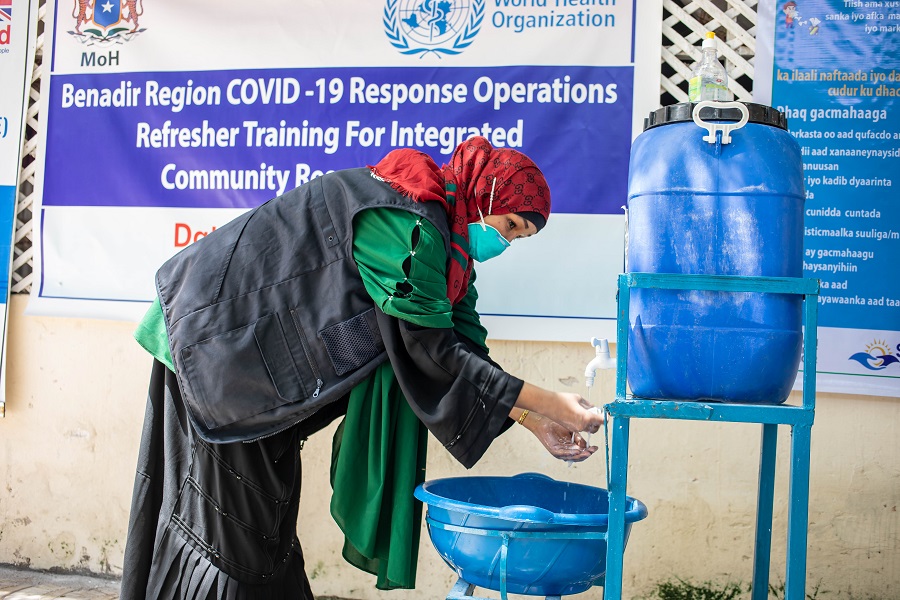
“While antimicrobial resistance is a global issue, in Somalia, we can reduce resistance to antimicrobials only if all stakeholders – policy-makers, health care providers and community members, pharmaceutical suppliers – play their role in spreading awareness about the right use of medication, prevention of resistance, and galvanizing consistent action around this topic,” said Her Excellency Dr Fawziya Abikar Nur, the Federal Minister of Health and Human Services in Somalia.
She added that policy-makers can help to design and implement policies to regulate the importation, sales and quality of medications. Communities can be more responsible with the use of medication, noting when to use antimicrobials, and to complete courses once started, for instance. Health professionals can be careful not to overprescribe medications and to dispense only high-quality medication. Agencies such as the media can support to spread the right messages.
Actions being taken to address antimicrobial resistance
In 2020, Somalia developed a national action plan to combat AMR, with support from the World Health Organization (WHO). The plan, which is yet to be endorsed formally by the Federal Government, outlines 4 pillars that would help control AMR — raising awareness, increasing surveillance of cases of drug resistance to infectious diseases, infection prevention and control (IPC), and the proper use of antimicrobials.
Recognizing the interconnectivity between humans, animals and plants outlined in the ‘One Health’ approach, the national action plan also advocates for the prevention of AMR at the human-animal interface and in food chains, by raising awareness as well as by implementing concrete health actions.
Highlighting ways in which Somalia and its partners can address this situation, Dr Mamunur Rahman Malik, WHO Representative to Somalia said, “Education is a key component in driving action. Even though we have seen many other urgent health issues such as COVID-19 take over the limelight, we must have conversations about the impact of antimicrobial resistance on the health of both humans and animals, and to incorporate this topic at all levels of health education.”
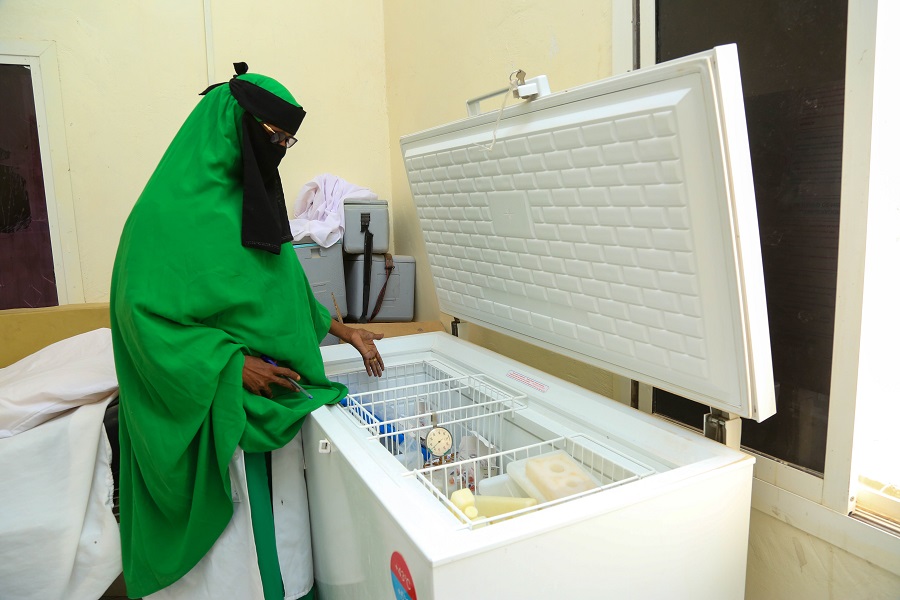
AMR remains a global health and development threat. It requires urgent multisectoral action in order to achieve the Sustainable Development Goals (SDGs). WHO has declared that AMR is one of the top 10 global public health threats facing humanity. The cost of AMR to the economy is significant. In addition to death and disability, prolonged illness results in longer hospital stays, the need for more expensive medicines and financial challenges for those impacted. Without effective antimicrobials, the success of modern medicine in treating infections, including during major surgery and cancer chemotherapy, would be at increased risk.
Somalia will celebrate the week through awareness raising sessions among health care providers and policy-makers in the country, as well as through committing to implement the national action plan for AMR, costing the national action plan, taking concrete actions for understanding the burden of AMR in the country through point prevalence studies, and introducing a sentinel-based surveillance system for regularly monitoring the threat and trend of AMR in the country. Building country capacity for detection and responding to the emerging threat of AMR in the country will be at the heart of these activities.
For additional information, please contact:
Khadar Hussein Mohamud
Head of Coordination and Communication
Federal Ministry of Health and Human Services, Somalia
This e-mail address is being protected from spambots. You need JavaScript enabled to view it
+252 615 602 637
Fouzia Bano
WHO Chief of Staff ai, Communications Officer
This e-mail address is being protected from spambots. You need JavaScript enabled to view it
+252 619 235 880





